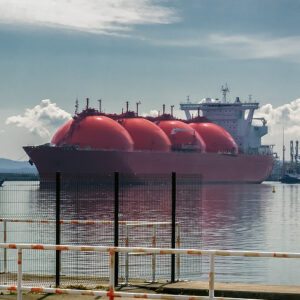A new study shows the popularity of U.S.-based liquid natural gas (LNG) continues to rise, despite efforts by environmentalists and the Biden-Harris administration to promote unreliable renewable energy.
The survey by Wood Mackenzie found LNG demand in Asia was expected to double by 2050, providing countries with an affordable alternative to coal, the region’s dominant electricity source.
“Without certainty of an affordable supply, their fallback position, quite understandably, is to stick with a fuel they are familiar with and which they know is likely to be inexpensive and plentiful: coal,” said Paul Everingham, the CEO of Asia Natural Gas & Energy Association (ANGEA) which commissioned the study.
The U.S. is the world’s largest exporter of LNG. It sent 20.9 billion cubic feet per day to other countries, according to the U.S. Energy Information Administration (EIA). Exports surged in 2022 as the world pivoted from Russia’s LNG after its invasion of Ukraine.
It’s particularly important to Pennsylvania’s economy. The Keystone State ranked second in natural gas-producing states, behind only Texas. EIA statistics showed the state was the second-highest exporter of natural gas to other states.
That surge was threatened by the Biden-Harris administration last January when it enacted a temporary pause on new LNG exports and halted approvals of new export terminals. The administration said it was needed to tackle climate change and further reduce carbon emissions. A federal judge issued a preliminary injunction over the summer.
While the incoming Trump administration is expected to revoke the temporary pause, ANGEA hopes the move happens sooner, rather than later. The survey said the U.S. LNG could make up to 33 percent of the global supply by 2035, if planned and proposed projects are developed. Those projects are not expected to come online until the later stages of the 2020s.
The EIA said last month Asia saw an increase in LNG imports this fall due to milder temperatures. It’s hopeful LNG storage in Japan and South Korea will remain at peak levels, but noted that’s not a guarantee. LNG storage levels in those countries tend to average 50 percent of capacity, far below the European Union, which hit 100 percent this year and last year.
That disparity in storage highlights the challenges developing nations like Bangladesh, Thailand, and Indonesia face.
The Wood Mackenzie analysis warned those Asian economies and the environment would suffer if the American LNG pause took effect. The survey predicted a jump in LNG prices as Asian buyers shift to less-competitive markets instead of the U.S.
That would force countries to remain reliant on coal, which is cheaper to produce but worse for the environment. Wood Mackenzie analysts predicted Asia would burn enough coal per year to equal the annual emissions of 20 million cars.
And despite claims from environmentalists that wind and solar-produced energy can and would eventually take over for fossil fuels, Wood Mackenzie officials believe that’s not feasible.
“Bangladesh, for example is densely populated, which makes developing renewable projects difficult close to demand centers. Meanwhile, countries such as Thailand and Indonesia have limited ability to harness onshore wind power due to low wind speeds,” said Robert Liew, Wood Mackenzie’s director for Asia renewables research.
Bangladesh and Indonesia burned a record amount of coal in 2022 and 2023. The countries promised to shift to gas-fired power and renewable energy, but Liew expressed skepticism at their ability to wean off coal if there’s a limited supply of American LNG.
Another competing factor involved extremely ambitious climate goals set by politicians. Indonesia’s new prime minister recently vowed to phase out coal by 2020 and reach net zero by 2050. Energy consultant Ember Energy suggested the country would have to retire three gigawatts of coal annually to meet those goals.
That’s why Craig Stevens, a spokesperson for the GAIN Coalition and former senior advisor to U.S. Energy Secretary Sam Bodman, said the LNG pause needed to end, so energy infrastructure projects could start up again. That would give Americans jobs and the globe access to cleaner-burning fuels.
“America is blessed with tremendous energy resources, and it would be wise to develop those resources to strengthen the U.S. economy and power our allies, instead of forcing them to buy their energy from other countries,” he said.

